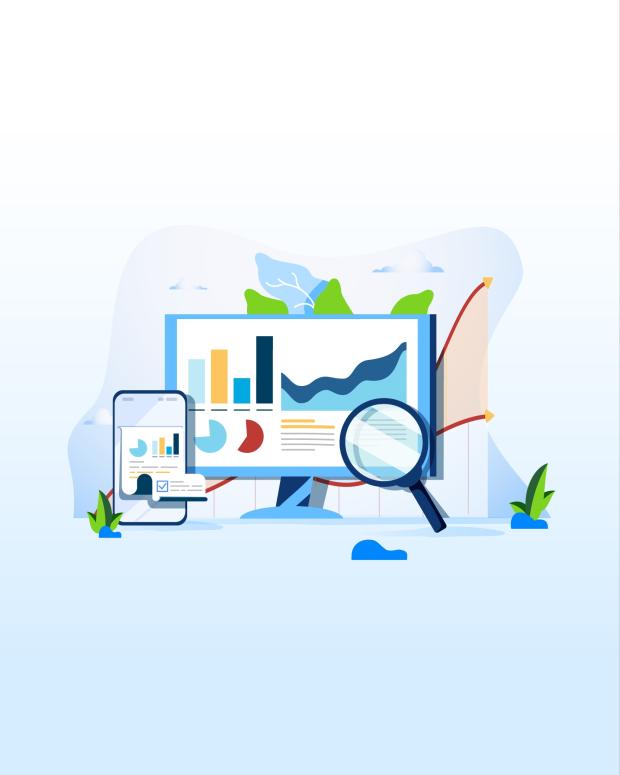Artificial intelligence (AI) and machine learning have transformed industries across the board, including marketing. In the past few years alone, we've seen the capabilities of artificial intelligence (AI) and machine learning grow at an incredible pace. Today, you'd be hard-pressed to name an industry that hasn't been affected, at least in some way, by the use of AI.
Marketing is no exception. As AI technology continues to improve, potential applications in marketing are making it possible for marketing professionals to save time, unleash their creativity, and truly customize campaigns to more precise audiences than ever before.
So, what are some of the best ways to use AI in marketing, and what kinds of trends might we see in the future? Let's dive in.
5 Innovative AI-Driven Campaign Ideas for Modern Marketers
There are so many creative ways that AI can now be used in marketing, from personalizing content to improving customer engagement with chatbots. Explore a few of the most popular applications for AI below and consider how these could make your workload as a marketing professional a little lighter.
1. Personalized Content Creation With AI
When ChatGPT was launched in late 2022, its generative AI technology took the world by storm (and continues to do so today). Specifically, ChatGPT and similar generative AI platforms can receive input in the form of text/code and then turn those inputs into unique text.
Many marketers are now leveraging AI in digital marketing to generate personalized content quickly and efficiently. When a brand needs a new blog post, a social media post, or even a marketing email, generative AI can be used to craft engaging content in a matter of seconds. This frees up valuable time for marketing teams to use their talents elsewhere.
2. AI-Powered Chatbots for Enhanced Customer Engagement
AI marketing strategies now include AI-powered chatbots, streamlining customer service and improving customer engagement around the clock. Rather than having staff online and available to answer questions and comments, AI chatbots can be programmed to carry out any number of tasks, from checking on the status of orders to answering questions about a company's products/services.
When AI-powered chatbots are available to provide customers with the information they need when they need it, this enhances overall customer engagement and satisfaction.
3. Predictive Analytics for Targeted Marketing Campaigns
In AI, predictive analytics is a data-driven approach combining computational and statistical techniques. These methods then analyze large amounts of historical data to predict trends and future outcomes. This can be useful in the development of targeted marketing campaigns.
For example, predictive analytics can determine when the best day and time is to send out a marketing email to maximize open and click-through rates. More specifically, this can be predicted based on data from previous campaigns. In some cases, predictive analytics may even be used to predict customer behavior, influencing marketing decisions.
4. AI-Driven Social Media Insights and Automation
Several brands are also beginning to use AI social media tools as a means of gaining valuable insights and automating tedious tasks on social media platforms. Using these tools, for instance, marketing teams can generate, schedule, and post engaging content all from one easy-to-use platform. From there, these social media automation tools can tackle campaign performance analysis, providing marketers with in-depth reports on the success of each campaign. All of this saves marketing teams valuable time in handling their social media marketing while improving the quality of campaigns in the process, which is a win-win for businesses of all sizes.
5. Interactive AI-Based Email Marketing Campaigns
Rather than being used just to generate email marketing messages, some brands are now beginning to experiment with tools that create interactive, AI-based email campaigns based on recipient input. For instance, if a customer shopping online abandons their cart, this could automatically trigger an email to be sent to the customer with a special discount to encourage the sale.
Exploring the Tools Behind AI Marketing

As you can see, AI has many potential applications for marketing teams. The key, of course, is determining which strategies will be most useful to your brand while also finding the right tools to put these ideas into action.
Key AI Tools for Crafting Personalized Content
There are so many great generative AI tools for creating truly unique and personalized content, but the right tool for your marketing team will ultimately depend on what kind of content you need, your budget, and other factors. Check out this list of the top 10 AI tools for content creation as a starting point.
Advanced Chatbot Platforms for Real-Time Interaction
There are also dozens of reputable AI-powered chatbot platforms on the market, so it's important to do your research if you're thinking about implementing a customer service chatbot on your site. As you explore chatbot options, be sure to look at such critical factors as ease of integration, quality of conversation, and security.
You can explore a list of top-rated chatbot software here, but some notable choices from the list include:
- ChatGPT
- Microsoft Copilot
- Jasper
Leveraging Predictive Analytics Software for Precision Targeting
Predictive analytics software can be an excellent addition to your AI tools if your brand wants to customize and target its marketing campaigns with maximum precision. There's a lot to keep in mind when choosing predictive analytics software, ranging from the specific type of data you want to analyze to ease of integration and budget.
Some popular options to consider for predictive analytics in marketing include:
- Adobe Analytics
- Azure Machine Learning (Microsoft)
- SAP Analytics Cloud
- Oracle Analytics Cloud
Utilizing AI for Social Media Monitoring and Engagement
Social media automation and analytics tools can be useful for brands looking to grow their social media presence and following. Precisely, marketers should be on the lookout for tools that come with time-saving features, including post-scheduling and performance analysis across every platform your brand uses. Meanwhile, it's also important to choose a platform that integrates quickly and offers a user-friendly interface with minimal learning curve.
There are several popular AI social media tools on the market today, with top contenders including:
- Brandwatch
- Brand24
- Feedhive
The Best AI Email Marketing Platforms for High Conversion Rates
When leveraged correctly, AI email marketing tools can boost conversion and click-through rates while improving overall engagement with your brand's target audience. Ideally, the AI email marketing platform you select should be an all-in-one solution for automated A/B testing, email content generation, sentiment analysis, segmentation, and beyond.
Not sure where to begin? Check out this list of the top 10 AI email marketing tools of 2024, with highlights including:
- Optimove
- Seventh Sense
- Zeta Global
- Phrasee
Integrating AI into Your Marketing Strategy
Interested in integrating AI into your marketing strategy? There are some essential steps you'll want to follow, as well as some common mistakes to avoid.
Steps to Incorporate AI Into Your Marketing Efforts
Begin by assessing your current marketing strategy and determining your specific goals for AI adoption. What specific metrics and key performance indicators (KPIs) will you measure to determine the success of each AI tool or application? From there, take time to familiarize yourself and the rest of your marketing team with data privacy laws and regulations as they relate to your industry.
Once you have a better feel for where you want to improve, you can begin assessing different AI tools and choose the ones that will best serve your brand.
Overcoming Common Challenges in AI Adoption for Marketing
Perhaps the biggest obstacle most brands need to overcome when adopting AI is the initial learning curve. Even experienced marketing teams will need extensive training to utilize AI tools and their features, so businesses need to be prepared to set aside the proper amount of time and resources for this type of training.

Future Trends: Where AI in Marketing is Headed
What does the future hold for AI? Here are some emerging trends we expect to see in the coming years.
The Rise of Voice and Visual Search
Rather than using text alone as input, some AI platforms will soon be able to accept voice prompts and even visuals. This could very well change the way customers interact with AI chatbots and the way marketers use AI.
Advancements in AI-Generated Content
AI content generation uses natural language processing (NLP) and machine learning to continuously improve, so the quality of AI-generated content should also improve over time. This could result in more accurate content and, thus, more practical applications for marketing teams.
The Evolving Role of AI in Customer Data Analysis
As brands continue to collect more customer data than ever before, AI can continue to be used to analyze and gain valuable insights from that data. Over time, this could lead to marketing teams being able to more accurately predict customer behaviors and optimize campaigns.
Ethical Considerations and Privacy in AI Marketing
There's no denying the importance of ethics and data privacy when using AI for marketing. The demand for transparency in how data is collected, stored, and used will likely increase as customers become more aware of AI and its capabilities.
Advance Your Marketing Skills With a Certificate
As AI technology continues to evolve and its capabilities expand, the need for experienced and skilled marketing professionals who know how to use the latest AI tools will likely increase. If you want to expand your knowledge of marketing and the use of AI in your field, it may be time to advance your education with a graduate certificate in marketing.
Champlain College Online is proud to offer an online graduate certificate in marketing that can be completed in as little as two terms. Get in touch today to learn more, or get started with your online application.
FAQs
There are many potential applications for AI in marketing, ranging from content creation and predictive analytics to customer service (chatbots) and beyond.
AI tools make it possible to personalize marketing campaigns without creating additional work for marketing teams. For example, AI email marketing tools can be used to automatically customize email subject lines to improve click-through rates.
One of the most important things to do before designing and implementing any AI marketing strategy is to determine where your brand currently stands and your goals for improving your marketing outcomes. Ideally, these should be measurable goals with meaningful KPIs that you can track to determine the success of each strategy or tool.
Because working with AI often means collecting and working with enormous amounts of data, there are always some inherent concerns about privacy and security. When using AI for marketing purposes, it is vital to follow all data privacy laws and regulations that pertain to your respective industry.
Only time will tell how AI will impact the job demand for marketers, but it is likely that AI tools will only free up marketers' valuable time to focus on other important aspects of their work. In fact, according to the Bureau of Labor Statistics (BLS), the demand for advertising, promotions, and marketing managers is still projected to grow by 6 percent between 2022 and 2032 alone.
As AI technology evolves and advances, it will likely take on a more significant role in marketing. For instance, AI tools may continue to be used to automate more tasks and processes while making it possible to personalize campaigns in ways previously believed to be impossible.






